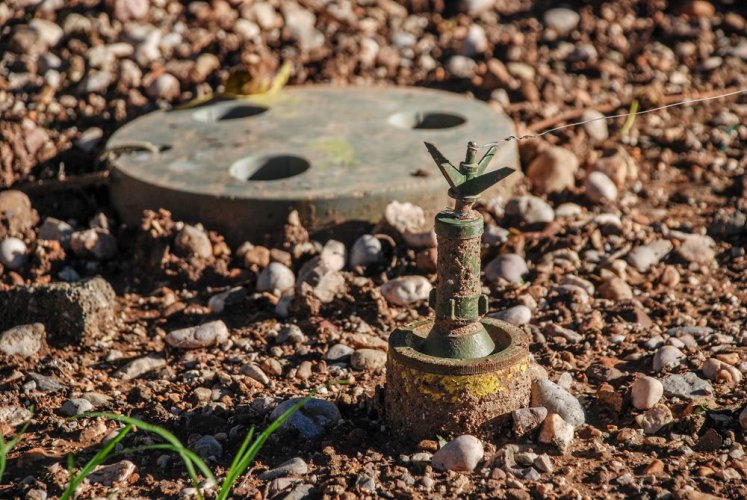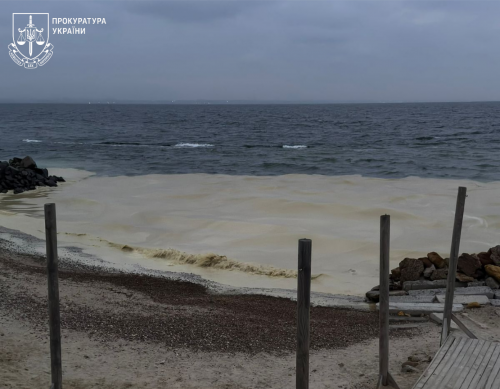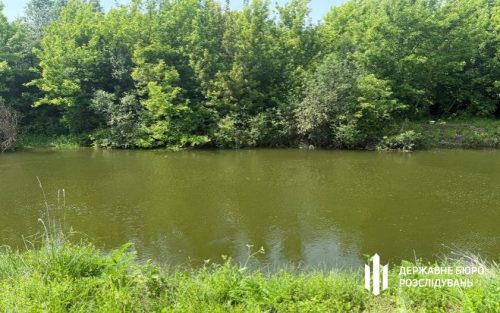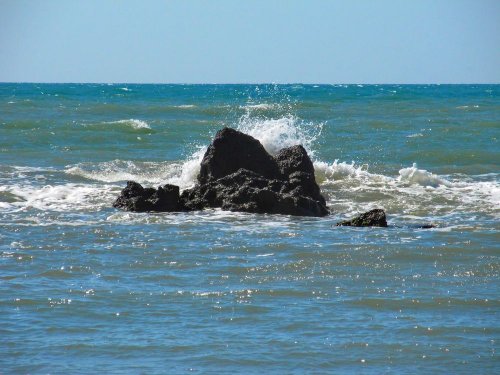During the week of June 16-22, 2022, russian troops continue colossal destruction in Ukraine and commit crimes against the environment, which are documented by the specialists of the Operational Headquarters.
The Ministry of Natural Resources enlisted the support of leading international law firms to prepare lawsuits against the aggressor country, reports Ministry of Natural Resources.
Minister for Ecological Transition of Italy Roberto Cingolani noted that Italy will help Ukraine to calculate the environmental damage from Russian aggression.
On June 20, the Government of Ukraine adopted draft law No. 2207-1-d "On Waste Management", which lays the foundation for the legal regulation of waste management, including waste generated as a result of the war. This framework law will launch industry reform in Ukraine and bring Ukrainian legislation closer to EU standards.
Threats to nuclear and radiation safety
Zaporozhye NPP continues to work in the occupation, and the workers are subjected to repression. The staff is working under great pressure, facts of bullying and kidnappings have been recorded. Nuclear safety at ZNPP continues to be at risk.
At Exclusion zones of the Chernobyl nuclear power plant continues working to eliminate the consequences of the occupation. Due to the summer heat, a large number of mines and flares left by the russian invaders in the Zone, the level of fire danger has significantly increased. Volunteers provided firefighters with the necessary equipment.
Also, the equipment of the Russian army entailed the risks of transferring radioactive contamination outside the Zone. The radiation survey of the section of the route Kyiv - Ivankov - "Detyatki" checkpoint, carried out on June 14-15, showed that the radiation level is within the natural background values. It is also planned to conduct a radiation survey of the territories of the Gostomel, Buchan and Irpen communities in the cleared areas.
Attacks on infrastructure and industrial facilities
June 16
- russian troops launched a missile attack on a food processing plant in Kharkov;
- as a result of shelling, a fire broke out on an area of 800 sq.m. at the chemical plant "Coagulant" in the city of Pologi, Zaporozhye region. Rescuers liquidated the fire, there was no chemical threat to the population.
June 18
- the shelling of a gas processing plant in the Izyumsky district of the Kharkiv region caused a fire, which was extinguished for 6 days;
- 6 missile strikes on the Kremenchug oil refinery, and 2 strikes on the Kremenchug thermal power plant. Since February 24, oil refineries and thermal power plants have been subjected to the greatest attacks and destruction among the entire infrastructure of the Poltava region;
- 3 cruise missile strikes on an oil depot in the Novomoskovsky district of the Dnepropetrovsk region, during which a fuel tank exploded during the extinguishing of which. The massive fire lasted 108 hours, killing 3 people;
- rockets hit the plastic window factory and the Nikolaev sausage shop.
On June 21, several fires broke out in Kharkov as a result of Russian shelling, the largest of which was in a warehouse on an area of about 3000 m2.
22nd of June
- attack on the most powerful in Ukraine Uglegorsk thermal power plant in the Donetsk region;
- as a result of rocket attacks, two enterprises in Nikolaev suffered. On one of them, a large-scale fire broke out, where fuel and lubricants were burning.
During the week in Severodonetsk in the Luhansk region, numerous shellings of a chemical non-standardized equipment plant, a brick factory, Stekloplastika and the Azot plant, the third largest ammonia producer in Ukraine, were recorded. There are almost no surviving administrative buildings left on the territory of the chemical giant.
“Large-scale fires at infrastructure and industrial facilities lead to air poisoning with especially dangerous substances. Pollutants can be carried by winds over long distances,” the article noted.
Pollution directly caused by fighting
According to the State Emergency Service, from February 24 to June 22, 2022, 143,287 explosive objects, including 1,995 aerial bombs, were defused on the territory of Ukraine. The area of 61,809 ha was surveyed.
According to the Ministry of Internal Affairs, in Ukraine, an area of about 270,000 square kilometers (including the occupied territories) needs demining. Complete demining of the territories will last 5-10 years.
Since the beginning of the full-scale invasion of Ukraine, the Russian army has used weapons and ammunition prohibited by international treaties at least 210 times. Most often, Russian troops used cluster munitions, in particular those that will be dangerous to people for decades after the end of the war.
Military equipment and ammunition have been destroyed, exploding rockets and air bombs are polluting the soil and groundwater with chemicals, including heavy metals.
Harm to reserves and ecosystems
At the end of March, air bombardments and rocket attacks on the forestry areas of the State Enterprise "Chernihiv Military Forestry" damaged more than 400 hectares of forest, the damage amounted to more than 3.4 billion hryvnia.
On June 19, the Kharkiv State Veterinary Academy suffered from russian rocket attacks, but the animals are unharmed. All the horses died from a direct hit on the equestrian sports complex near Severodonetsk.
On June 21, rocket attacks damaged houses on islands in the Danube Delta, a protected area of international importance.
Harm to water resources
Russian troops occupied the Zaporozhye iron ore plant in the village. Malaya Belozerka, where workers continue to stay. They are trying to prevent an ecological catastrophe, because if the work on pumping water stops, the mine will be flooded and the iron will pollute the aquifers of the entire region.
Residents of the Kharkiv region are asked not to visit water bodies, because a significant area of forest belts and beaches remains mined, and a large number of unexploded ordnance may be in the waters of water bodies. Explosive objects can be found anywhere in the reservoir.
In the Kherson region, near the villages of Bolshaya and Malaya Aleksandrovka, an ammonia tank with a volume of 36 cubic meters was damaged during shelling. meters. Ammonia leaks into the soil, there is a risk of ammonia entering the groundwater. The occupiers do not take any measures to eliminate the emergency.
Black Sea
Maritime traffic from all Ukrainian ports in the Black Sea remains blocked due to the threat of attacks, seizure or detonation of sea mines.
On June 20, in the city of Koblevo, Mykolaiv region, a sea mine was brought to the shore, which exploded at a distance of about 50 meters. Within a week, mines exploded on the coast of Odessa and Nikolaevskaya.
The ecosystem of the Black Sea suffers devastating damage. Due to hostilities, toxic substances from shells, flooded equipment and submarines enter the water. The situation is complicated by the destroyed water treatment plants in the occupied territories.
Recall Minister of Ecology Ruslan Strilets spoke about the global environmental consequences of the war and named them time bomb.
As EcoPolicy reported earlier, the bombing of the stadium in Chernihiv caused damage to the environment by UAH 676 million.





